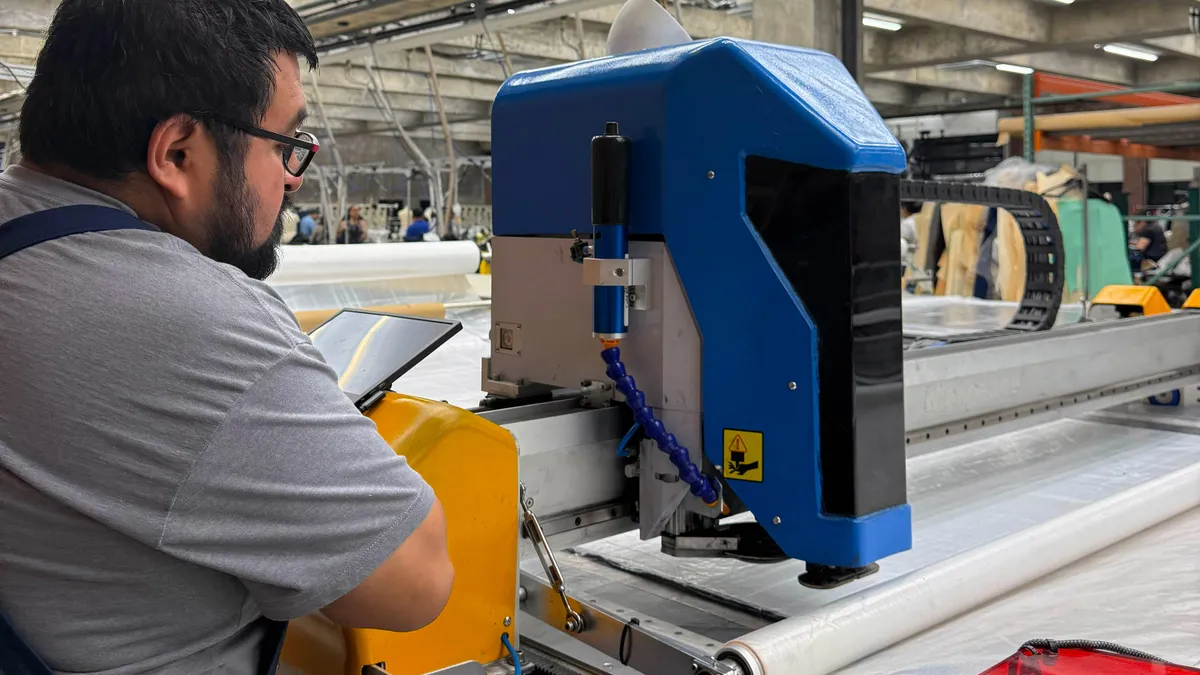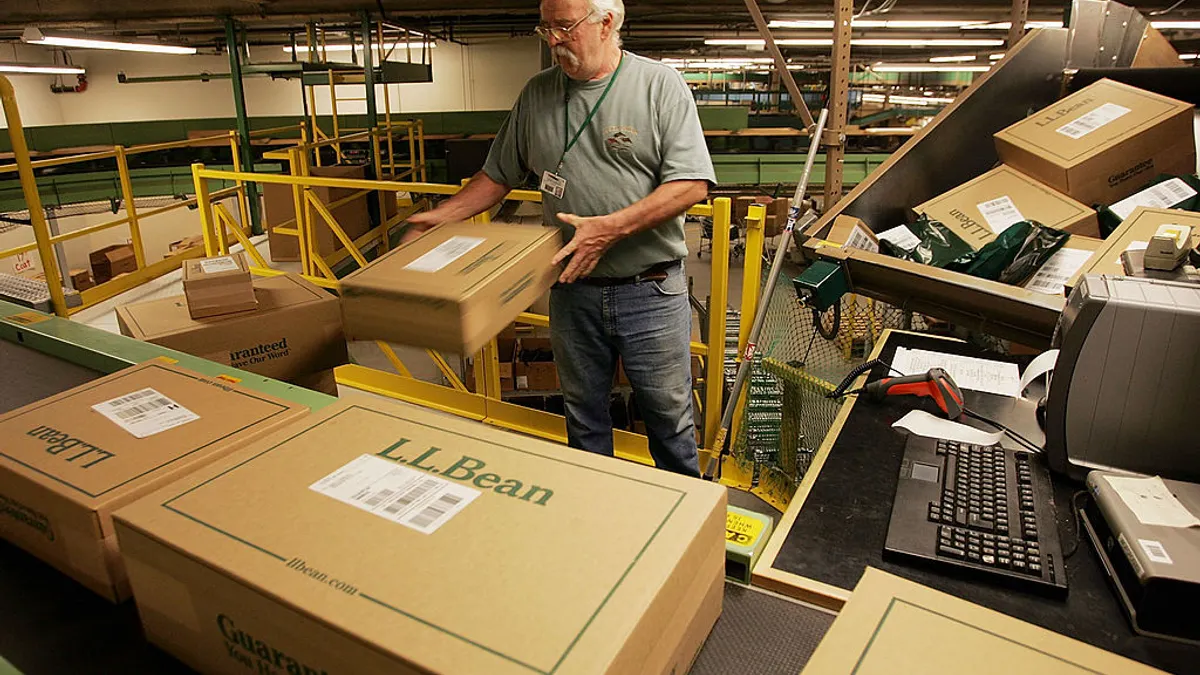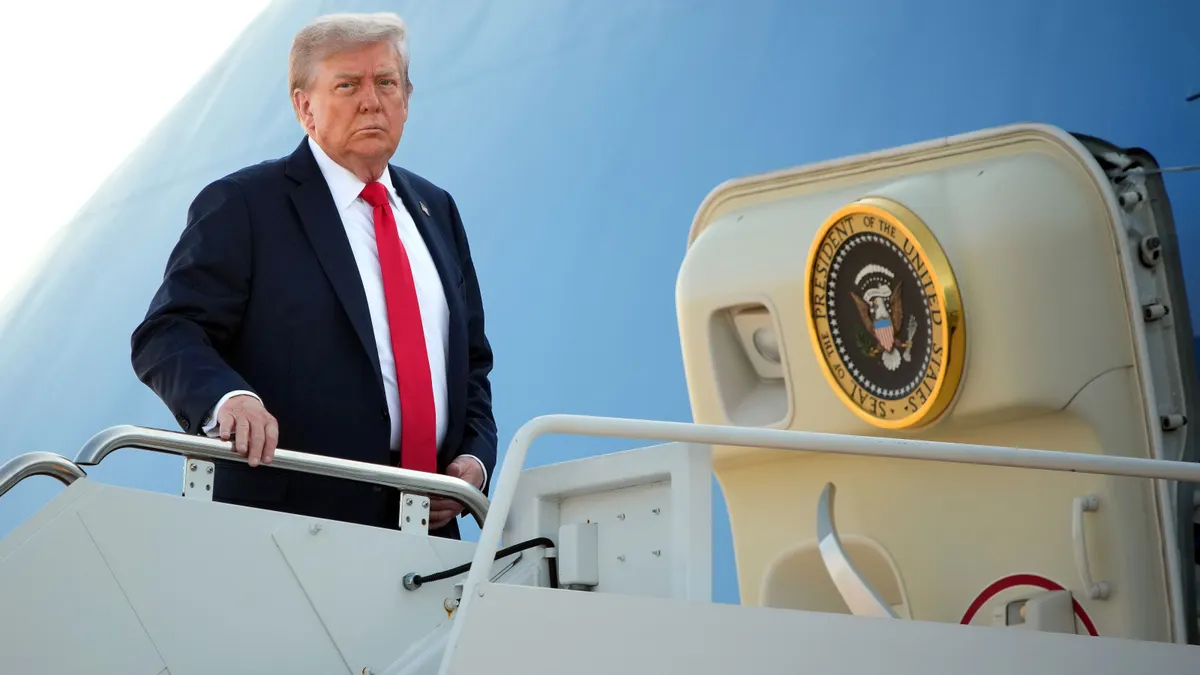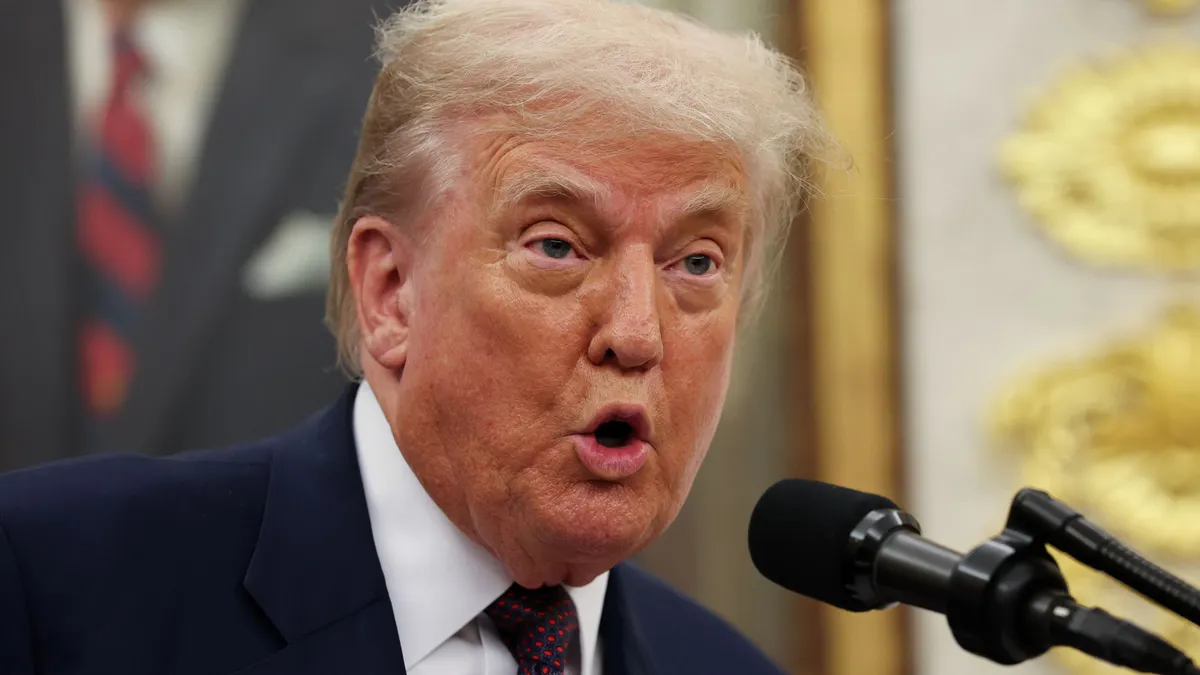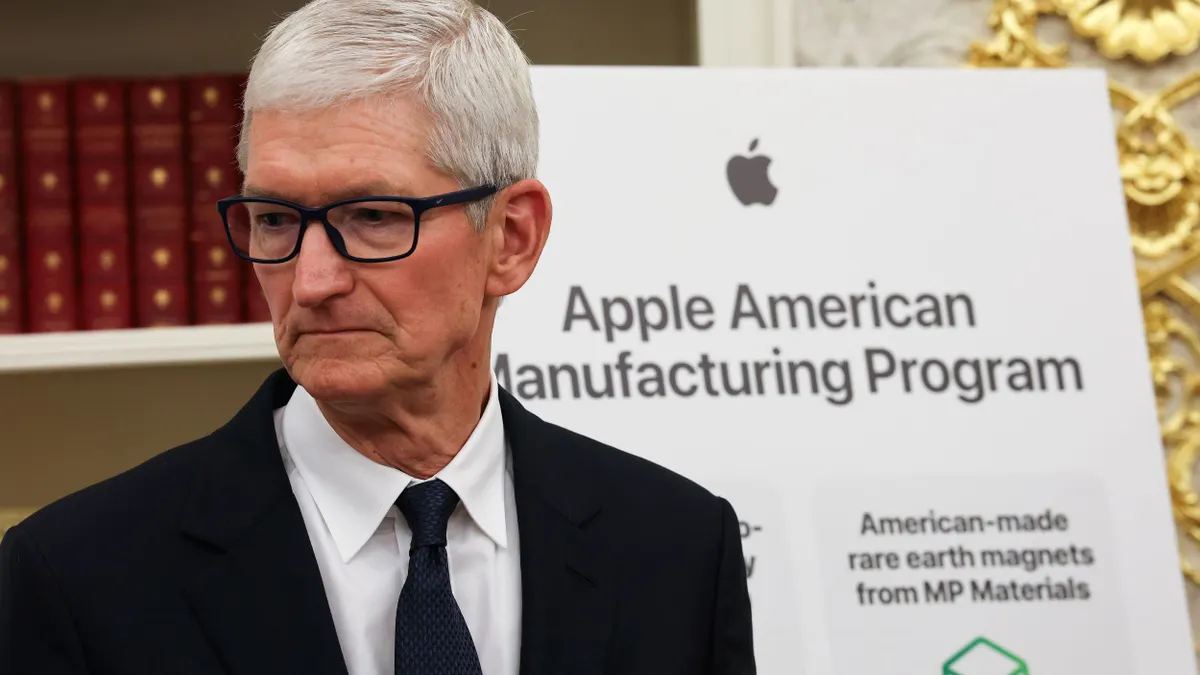Manufacturing leaders are mixed on President Donald Trump’s decision over the weekend to impose tariffs on three of the nation’s prominent trading partners: Mexico, Canada and China.
While some groups have expressed support for the administration’s bold actions, others have urged the president to take a more thoughtful approach as manufacturers take on more costs.
The tariffs on goods from Mexico and Canada were initially set to begin Feb. 4 but have been pushed to March. Trump’s executive orders would have placed 25% tariffs on goods from Canada and Mexico and a lower 10% tariff on Canada’s energy resources.
However, Trump’s executive orders also tacked an additional 10% tariff on imports from China, which began Feb. 4. In response to U.S. demands, China retaliated with a 15% tariff imposed on coal and liquefied natural gas. China also imposed a 10% tariff on crude oil, agricultural machinery and some cars, set to begin Feb. 10.
Trump spoke multiple times during his campaign about how he aims to expand U.S. manufacturing, which included tariff hikes on the three countries. The administration has explained that one purpose of the tariffs is to curb fentanyl entering the U.S. The administration has also criticized America’s neighbors for not doing enough to stymie illegal administration.
Now that the president is following through with his promises, some manufacturing trade groups are urging Trump to reverse course. Some cited the success of the United States-Mexico-Canada Agreement, which Trump worked on near the end of his first term, stating the deal shifted manufacturing imports away from China.
“A 25% tariff on Canada and Mexico would add an estimated $144 billion a year to the cost of manufacturing in the U.S.,” the National Association of Manufacturers said in a handout.
Manufacturing trade groups also said they are willing to work with the Trump administration to pursue and meet their shared goals for the industry, while some are requesting exemptions.
Here is what industry leaders have said about Trump’s tariffs on Mexico, Canada and China.
National Association of Manufacturers President and CEO Jay Timmons
Feb. 1: “Thanks to [the USMCA] agreement, one-third of critical U.S. manufacturing inputs now come from Canada or Mexico, rather than from competitors like China that often engage in unfair trade practices.
However, with essential tax reforms left on the cutting room floor by the last Congress and the Biden administration, manufacturers are already facing mounting cost pressures. A 25% tariff on Canada and Mexico threatens to upend the very supply chains that have made U.S. manufacturing more competitive globally. The ripple effects will be severe, particularly for small and medium-sized manufacturers that lack the flexibility and capital to rapidly find alternative suppliers or absorb skyrocketing energy costs. These businesses—employing millions of American workers—will face significant disruptions. Ultimately, manufacturers will bear the brunt of these tariffs, undermining our ability to sell our products at a competitive price and putting American jobs at risk.”
Society of Chemical Manufacturers & Affiliates President and CEO Jennifer Abril
Feb. 2: “While SOCMA supports policies that promote fair trade and protect North American producers, broad tariffs risk unintended consequences that weaken U.S. manufacturing. A targeted, strategic approach is essential to addressing trade challenges without undermining the supply chains that specialty chemical manufacturers depend on. We urge the Administration to implement trade policies that protect domestic interests while preserving access to critical raw materials and maintaining the benefits of USMCA.”
National Electrical Manufacturers Association President and CEO Debra Phillips
Jan. 31: “The electroindustry has taken major steps to reduce reliance on Chinese imports since 2018, decreasing China’s share of U.S. imports of electroindustry goods from 28.2% to 17.9%, while significantly growing electroindustry trade across North America by 36% spurred by USMCA.
We look forward to working with the Trump Administration to further strengthen USMCA, including its enforcement and ensuring it incentivizes new investments and jobs in the United States.”
American Chemistry Council
Feb. 3: “Canada and Mexico are our industry’s largest trading partners. The American chemical industry imports materials, many of which are unavailable in the United States, adding value and supporting other manufacturing supply chains domestically and abroad, through our exports. The U.S. chemical industry is a net exporter, both in the aggregate and individually with Canada and Mexico, contributing positively to the nation’s trade balance.
In particular, the U.S. chemical industry continues to support the USMCA Agreement between the United States, Canada and Mexico. The USMCA’s Annex on Chemical Substances, created under President Trump’s first administration, is a model for agreements with other countries, advantaging U.S. based production and promoting science-based regulatory approaches.”
Association of Equipment Manufacturers SVP Kip Eideberg
Feb. 2: “President Trump is right to focus on securing our border and protecting American communities. But levying tariffs on goods that U.S. equipment manufacturers depend on not only jeopardizes the President’s agenda, including the Trump Administration’s plan for a stronger, more competitive America, but drives up costs for U.S. equipment manufacturers, disrupts our supply chains, and exposes our customers to retaliatory tariffs. The fact remains: tariffs are a tax paid by Americans, and their broad-based application will stifle economic growth and undermine the competitiveness of the United States.
Equipment manufacturers stand ready to work with the Trump Administration on a trade strategy that holds bad actors accountable, safeguards the benefits of the successful United States-Mexico-Canada Agreement, and bolsters equipment manufacturing in North America.”
Consumer Brands Association VP of Supply Chain Resiliency Tom Madrecki
Feb. 1: “Tariffs on all imported goods from Mexico and Canada – especially on ingredients and inputs that aren’t available in the U.S. – could lead to higher consumer prices and retaliation against U.S. exporters. Despite sourcing the vast majority of ingredients and inputs from U.S. farms and domestic suppliers, CPG companies depend on global supply chains for certain imports due to unique growing conditions and other limiting factors around the world. We urge leaders in Mexico and Canada to work with President Trump to protect consumers’ access to affordable products and remove tariffs that could contribute to grocery inflation.”
American Petroleum Institute President and CEO Mike Sommers
Feb. 1: “The U.S. is by far the world's largest oil producer, but U.S. refineries—primarily in the Midwest—rely on Canadian crude to produce the gasoline, diesel and jet fuel that's critical for transportation, agriculture and American consumers. The U.S. is the largest market for Canadian crude oil exports and Mexico is the No. 1 destination for U.S. refined product exports. U.S. oil and natural gas exports to China totaled more than $14.4 billion in 2023 and are critical to reducing our trade deficit.”
Aerospace Industries Association VP of International Affairs Dak Hardwick
Feb. 2: “We are assessing the potential impact of these tariffs on our industry and our supply chain, which is unique to our sector and shared between commercial and defense companies.
Decades-long trade agreements enabled robust civil aviation and defense trade that resulted in a sky-rocketing positive trade balance over the last 40 years, making aerospace and defense the largest American exporting industry. Tariffs on Canada and Mexico could change that positive trajectory. We hope to work with the Trump Administration to find a path forward to protect this critical industry, which is a strategic asset to both our economy and our national security.”
Motor & Equipment Manufacturers Association (MEMA), The Vehicle Suppliers Association
Feb. 3: “This period of negotiation provides an opportunity to explore solutions that achieve shared objectives while maintaining the strength and stability of North American trade. The vehicle supplier industry remains the largest sector of manufacturing jobs in the U.S., and the relationships between the three nations are a key facet of the industry’s daily operations and competitiveness.
We recognize and respect President Trump’s commitment to addressing critical challenges concerning border security and fentanyl trafficking and appreciate this opportunity for the three partner nations in North America to engage in productive negotiations. A collaborative, strategic approach will be key to ensuring that these efforts meet their intended goals without disrupting the highly integrated North American supply chain that supports U.S. jobs.”
Plastics Industry Association President and CEO Matt Seaholm
Feb. 1: “PLASTICS is concerned about the new tariffs and their impact on U.S. plastics manufacturing and jobs. While we understand President Trump’s rationale, a blanket tariff policy could have significant economic consequences, disrupting the movement of essential machines, products, and materials that keep American manufacturers running. A competitive industry requires policies that protect high-quality jobs and ensure stable supply chains across sectors like healthcare, consumer products, and automotive. A strategic, measured approach to trade is critical to strengthening—not inadvertently harming—U.S. industry.”
American Apparel & Footwear Association SVP of Policy Nate Herman
Feb. 1: “During this time of high inflation, this is not the time to impose new costs on U.S. supply chains. Instead, our industry needs tariff relief and commitment to smart trade policy and strong trade partnerships. We need to renew expiring and expired trade preference programs with our allies and strengthen the competitiveness of our free trade agreement with Central America to stem the tide of migration.”
Aluminum Association President & CEO Charles Johnson
Feb. 1: “During his first term, President Trump was early to recognize the genuine threat that non-market actors pose to U.S. manufacturing industries like ours. This led to more than $10 billion in industry investment since 2016. This investment requires an enormous amount of metal, much of which the U.S. industry must import from within North America. To ensure that American aluminum wins the future, President Trump should exempt the aluminum metal supply needed for American manufacturers, while continuing to take every possible action at the U.S. border against unfairly traded Chinese aluminum. This is consistent with action his administration wisely took during his first term. Then, we should work to keep unfairly traded aluminum out of the region by harmonizing tariffs with our North American trading partners.”





